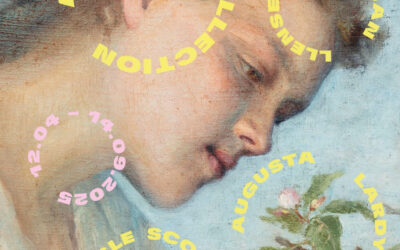Three Kilometres to the End of the World
Directed by: Emanuel Pârvu
Year of Production: 2023
Country: Romania
Duration: 105 minutes
I am heartened to see a Romanian filmmaker addressing this subject, which continues to pose significant challenges in Romanian society. During the communist era, we were compelled to protect and shield our loved ones whose romantic orientations were illegal, even resorting to fake marriages to avoid imprisonment. More than 35 years have passed since the fall of that regime, yet I am always surprised to find that retrograde principles still permeate Romanian society, not just in isolated communities like those in the Danube Delta. By choosing this particular village, Emanuel Pârvu clearly denounces these outdated values. Despite being “at the end of the world,” this village, which I have experienced multiple times, hosts a cosmopolitan crowd every summer.
Pârvu‘s poetic cinematography and his ability to leave room for the audience’s imagination undeniably signal a strong artistic signature. The Danube Delta, with its naturally contemplative environment and perspectives stretching from the near to the distant horizon, becomes a character in its own right. Pârvu‘s film seamlessly connects us to this place, making it as significant a protagonist as Adi, the main character.
His mastery of natural light, which he has evidently worked on extensively, imbues the film with a distinctive texture and atmosphere. This light penetrates the soul, resonating with the murmurs of people and the omnipresent water. The wind assumes a mystical role, reminiscent of the ancient culture of these lands between sky and sea, contrasting sharply with the church, an institution that still exerts a strong influence on Romanian society.

Miruna Berescu, Bogdan Dumitrache, Emanuel Pârvu, Ciprian Chiujdea, Ingrid Micu-Berescu, and Valeriu Andriuța
Due to my proximity to these lands, I sought an external opinion, which I am presenting to you in its entirety, as it is stark and clear:
A Carceral Tale of Rare Violence
Pârvu delivers a story punctuated by static shots and off-screen moments to better convey the rigid customs and hidden secrets buried in the wind’s noise of a small Romanian countryside. Through the character of Adi, we follow the torment of being different, the weight of religious dogmas, and the oppression of silenced voices. The use of silence throughout the film makes the unspoken unbearable, almost suffocating. In this town seemingly frozen in anachronistic puritanism, it is more grievous to love someone of the same sex than to kill a man for his sexual orientation, for following his heart. The entire film is a silent scream, a cry for salvation or an escape from a moralistic and guilt-ridden society. It is a work of rare poetry.
Alexandra Touchard
We salute the interpretation of Ingrid Micu-Berescu, who plays Ilinca in the movie. Her portrayal brings a warm ray of tenderness and unconditional love to the film, creating a poignant contrast to the harsh realities depicted in the story. Micu-Berescu‘s performance is both nuanced and heartfelt, imbuing her character with a sense of compassion and resilience. Through her expressive acting, she captures the essence of Ilinca’s unwavering support and affection, providing a beacon of hope. Her presence on screen is a reminder of the enduring power of human kindness and love.
Emanuel Pârvu‘s film is not just a narrative but a profound critique of societal norms. It highlights the enduring struggle between progressive values and entrenched prejudices. Through his lens, we witness the stark reality of a society caught between the remnants of its past and the possibilities of its future, all set against the hauntingly beautiful backdrop of the Danube Delta.
Alexandra I. Mas




